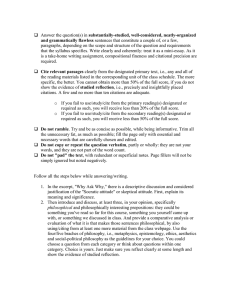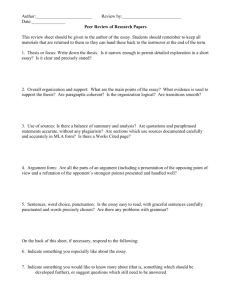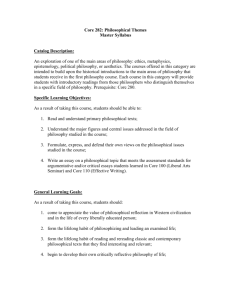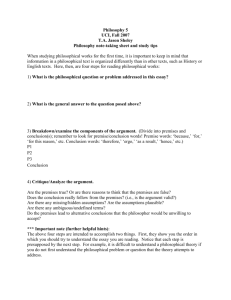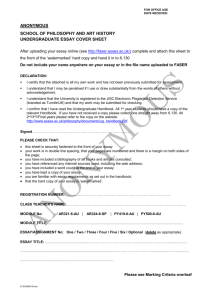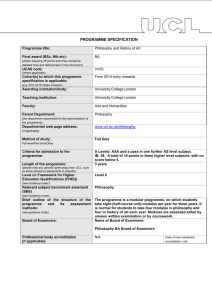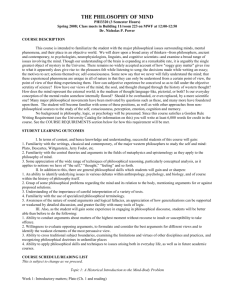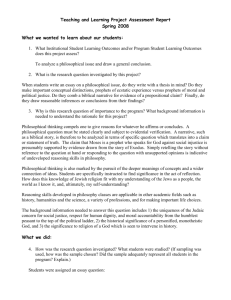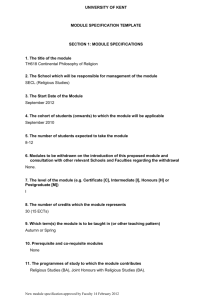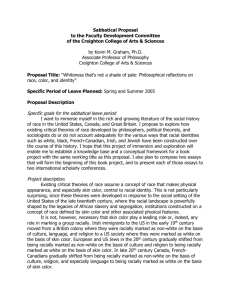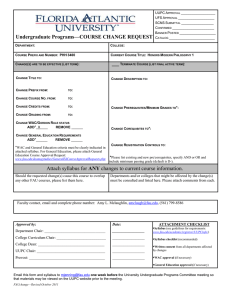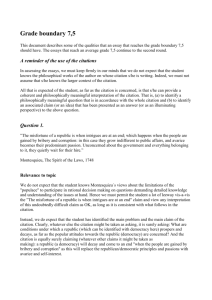Classical Issues in Philosophy
advertisement
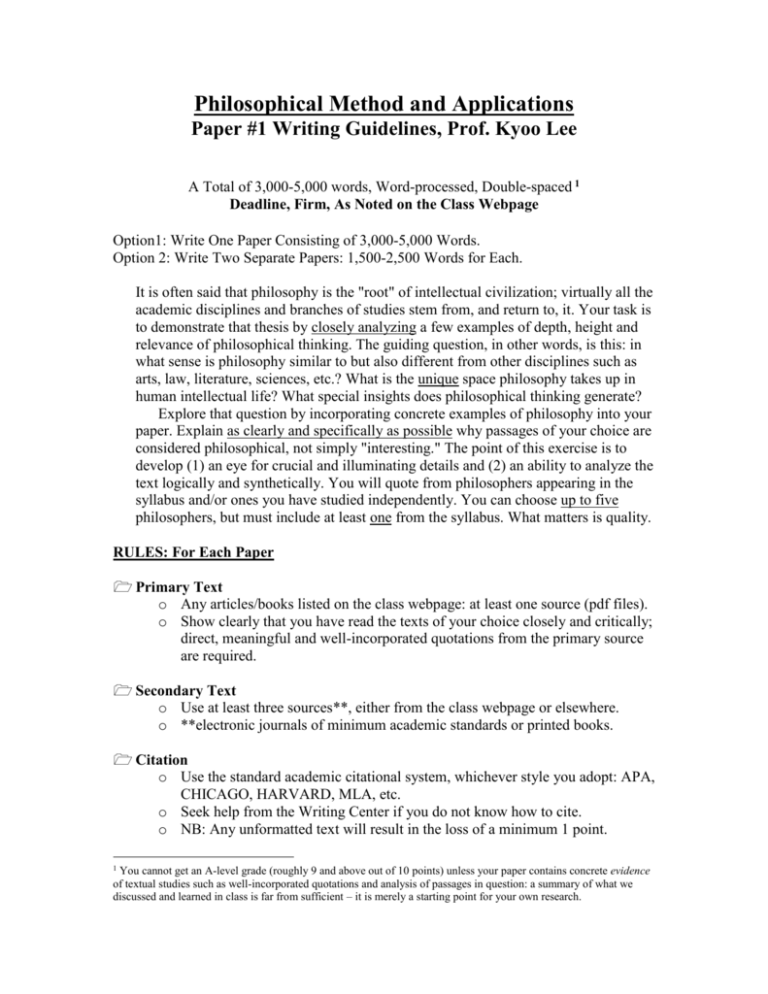
Philosophical Method and Applications Paper #1 Writing Guidelines, Prof. Kyoo Lee A Total of 3,000-5,000 words, Word-processed, Double-spaced 1 Deadline, Firm, As Noted on the Class Webpage Option1: Write One Paper Consisting of 3,000-5,000 Words. Option 2: Write Two Separate Papers: 1,500-2,500 Words for Each. It is often said that philosophy is the "root" of intellectual civilization; virtually all the academic disciplines and branches of studies stem from, and return to, it. Your task is to demonstrate that thesis by closely analyzing a few examples of depth, height and relevance of philosophical thinking. The guiding question, in other words, is this: in what sense is philosophy similar to but also different from other disciplines such as arts, law, literature, sciences, etc.? What is the unique space philosophy takes up in human intellectual life? What special insights does philosophical thinking generate? Explore that question by incorporating concrete examples of philosophy into your paper. Explain as clearly and specifically as possible why passages of your choice are considered philosophical, not simply "interesting." The point of this exercise is to develop (1) an eye for crucial and illuminating details and (2) an ability to analyze the text logically and synthetically. You will quote from philosophers appearing in the syllabus and/or ones you have studied independently. You can choose up to five philosophers, but must include at least one from the syllabus. What matters is quality. RULES: For Each Paper Primary Text o Any articles/books listed on the class webpage: at least one source (pdf files). o Show clearly that you have read the texts of your choice closely and critically; direct, meaningful and well-incorporated quotations from the primary source are required. Secondary Text o Use at least three sources**, either from the class webpage or elsewhere. o **electronic journals of minimum academic standards or printed books. Citation o Use the standard academic citational system, whichever style you adopt: APA, CHICAGO, HARVARD, MLA, etc. o Seek help from the Writing Center if you do not know how to cite. o NB: Any unformatted text will result in the loss of a minimum 1 point. 1 You cannot get an A-level grade (roughly 9 and above out of 10 points) unless your paper contains concrete evidence of textual studies such as well-incorporated quotations and analysis of passages in question: a summary of what we discussed and learned in class is far from sufficient – it is merely a starting point for your own research. Title o You must be able to come up with a title that best reflects your thesis. o NB: Any untitled essay will result in the loss of a minimum 0.5 point. Evaluation o See Paper Grading Rubric. (http://www.kyoolee.net/Dr._Lee_s_Paper_Grading_Rubric__Tabulated_One-Look.htm) o o Be creative by all means. But be so in addition to being faithful to the instructions; your originality has to be expressed within the formalized parameters of requirements. If you cannot make up your mind about the answer you will be giving (“yes or no, this or that”), what you can do is to show, clearly, the process of your philosophical struggle. NB: You cannot get an A-level grade on this assignment, however brilliant your thoughts are, without fulfilling the stated minimal criteria as laid out above. Advice on How to Write: An Exercise in "Building" an Argument First, review your class notes and discussion. Then, study the reading materials as much, and as deeply, as you can; take notes along the way, while you make your way through the secondary reading material. 1. [Introduction] Start your essay by providing the reader with some minimal background information, correlating to the topic or focus of your essay. You are certainly welcome to use my task-specific “cues” as an implicit lead or if necessary paraphrase it, but you cannot just copy it down. 2. [Main Body] While moving into the heart of your essay, based on your study so far, try and seamlessly build into your text what other quotable scholars have already said in print regarding what you have to say – this virtual dialogue is essential in academic writings. a. [Break Down Your Points/Thoughts] It is advisable to use preorganised, well-organised notes before attempting to write and eventually rewrite this part. b. [Cement Your “Bits” and “Pieces” of Informed Thoughts] Arrange them in a logical and creative sequence: a mere jumble of notes or thoughts does not deserve academic readership or a reasonably good grade. Remember: you are not collecting notes but writing an essay. c. [Insert anything extra or interesting further points after you have established the main line of argument] Often during composition, a new route of thinking can emerge and, actually, should; in stead of being carried away and getting lost, take note of those as marginal asides and edit them in later, creatively and seamlessly, after you have constituted the main line. 3. [Conclusion] Tie your thoughts and show a (syn)thesis, of which the reader is to be reminded conclusively. Elegantly, open up your thoughts to other possible challenges or further development, as well as showing you have done all you claimed you would do at the start of your essay.



